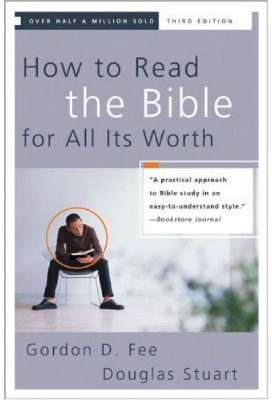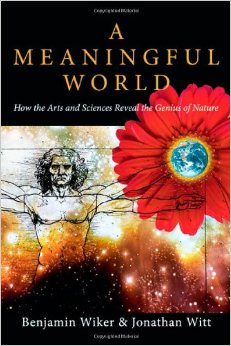 There is much help available in such thoughtful texts.
There is much help available in such thoughtful texts.By Neil Earle
 There is much help available in such thoughtful texts.
There is much help available in such thoughtful texts.190,000,000.
190,000,000 is the number of Americans not attending church. This makes the United States one of the world’s largest mission fields.
Yet the Christian – and specifically the evangelical community – in the USA and the broader culture do not easily coexist. Randy Rowland is a Seattle pastor who is an adjunct professor of communication and church renewal at Fuller Theological Seminary in Pasadena, CA. He states plainly: “I believe that in order to reach our current and emerging generations with the gospel, we are going to have to be more about listening and asking questions than proclaiming.”
This is true because to a certain extent the Christian church has lost traction in American society. The old days when bank managers checked with a person’s pastor to see if they were a stable risk are long long gone.
Today the church is often seen as the problem.
Here are four points of division between us and the mainstream culture – four issues that trouble many of the 190,000,000 about Christians and some hints at refocusing.
1. Religion and Science. Sometimes long-held perceptions are hard to change. There is an assumption abroad that if you check the box marked “Christian” you probably believe that the earth was created 6000 years ago, at about 6PM on January 1, 4004 BC. This was according to Archbishop Ussher, an Anglican cleric from the 1600s. Or maybe you believe that dinosaurs did not make it onto Noah’s ark in time.

Well, some may still believe these things – the Christian church is a wide tent, after all – but this is not the norm (if it ever was). Instead, a growing body of believers is amused at the discomfiture that bothers some physicists about the implications of the popular Big Bang Theory. As Benjamin Wiker and Jonathan Witt show in A Meaningful World, if the big bang had been too intense, the core elements would have tapered off like confetti, diffused and ineffective. If the bang had been too small, gravity would have turned its elements back on itself – a crunch not an expansion. They ask: Why did the Bang become a bloom, “an unfolding act of organic complexity unfolding like an ingeniously constructed play?”
Why indeed.
This meant that there were “controls” in place only seconds after the Big Bang to eventually allow carbon to emerge from helium and then oxygen as well. There are two of the essentials for life as we know it – oxygen and carbon. Atheist astronomer Fred Hoyle was honest when he saw the controls that must have been necessary at the point of expansion seconds after the bang – “a super-intellect has monkeyed with physics.”
For Christians interested in science this presents an intriguing possibility to fill out in more depth the famous line “where were you when I laid the foundations of the earth” (Job 38:4).
2. Sex and Gender Issues. The Christian church has a bad history here of being reactionary spoil-sports at almost every turn. From advocating the “two positions” mandate in marital relations to incorrectly assuming homosexuality was the problem in Sodom – it wasn’t, see Ezekiel 16:49 – there may be much for churches to relearn on this issue.
Most conservative denominations cannot be comfortable with the expansion of same-sex marriage they see taking place almost nightly on the news broadcasts, of course. But neither can they excise 1 Peter 2:17 from the Bible: “Honor all men.” More and more pastors learn that some of their faithful parishioners have relatives who are gay or lesbian and that has a tendency to tone down incendiary attitudes on this subject – at least in the pews.
Disagreeing with people over life choices doesn't mean pushing people into automatically hostile camps. As a pastor at Bel Air Presbyterian Church recently commented: “Jesus took people as he found them. He never met a Christian. He didn’t expect perfection before he engaged them, neither should we.”
When we think of Jesus and the Pharisees we automatically think “hostility.” But Jesus sat at meat in the Pharisee’s house and told one of them “You are not far from the Kingdom of God.” (Mark 12:28). Once again Jesus is our best model for engaging a suspicious, non-Christian culture.
3. Inerrancy vs. Inspiration. Many good Christian teachers have caused unintended harm by straying into this issue. The idea is – say inerrantists – that the Bible as originally written was absolutely infallible in any and all comments it made on everything under the sun. Physics. Art. Biology. Geography. Astronomy. The Bible is the last word.
But wait. This inerrancy approach tries to prove too much. It means we have to excise whole sections of Scripture that are clearly intended to be read with an appreciation for literary style and point of view. Think of Psalm 19 where the psalmist is describing the sun's orderly track across the horizon as an analogy of God’s Law. Is this scientific reportage or colorful language? What about 1 Corinthians 1:14-16 where Paul corrects himself “on the spot” in a three verse eruption of pique at the pesky Corinthians.
We must allow the Bible “room to breathe” like a great bottle of wine. Inspiration means that when we read the Bible we are guided by the Holy Spirit to trace out what we need for the day, not the latest updates on physics or politics. 2 Timothy 3:16 says the Bible is “God-breathed” yes but mainly for showing forth those irreplaceable truths that lead to salvation. In an effort to be “defenders of the faith” we Christians too often harm our own cause.
4. Issues of Church Structure. The early Methodists found they could reach people more effectively by showing up at coal mines when workers came off work, or being invited to people’s houses or even public gathering places and taverns where they could find an audience. Church did not mean a bell and steeple, at least at not all phases of church history – St. Paul met out by a river in Philippi (Acts 16:13). There is a much less felt need for hierarchical structure with many in the twitter generation. But across history Church has always meant more than a pew and a solemn liturgy although that has its respected place in the spectrum of Christian worship.
We will have to be a lot more open about how we do church to attract “generation text.” But even in Corinth Paul allowed one speaker to politely interrupt another if something of spiritual import needed sharing (1 Corinthians 14:29-30). This is easily abused, of course, but groups such as the Quakers have been running things like this for centuries.
“Church” is a broad-based word. In our local congregation these past ten years we have done church in peoples’ living rooms and in senior citizen homes and coffee shops – any place to get a gathering, which is closer to what the word “ekklesia” for church means.
The future will challenge us all but I agree with pastor Rowlands’ conclusion: Christians are uniquely placed to “offer people a safe place to ask the hardest darkest deepest and most challenging questions about the nature of reality or the meaning of life or the existence of God.”
Right on. The Church has much to offer. That’s why we do it.